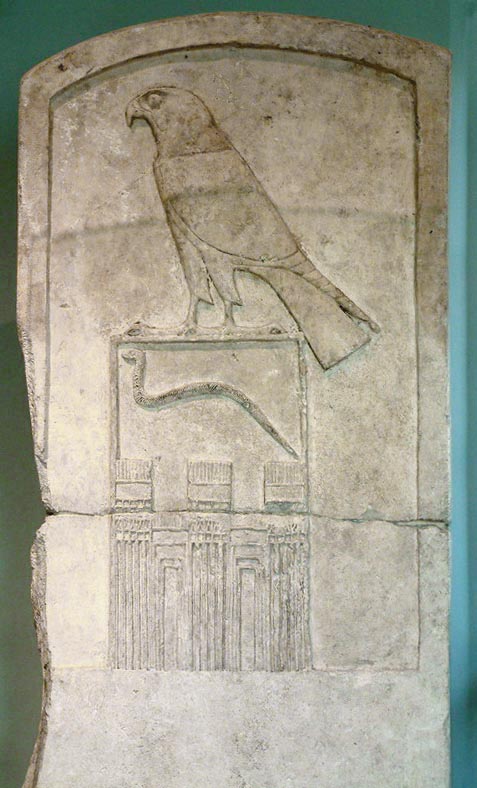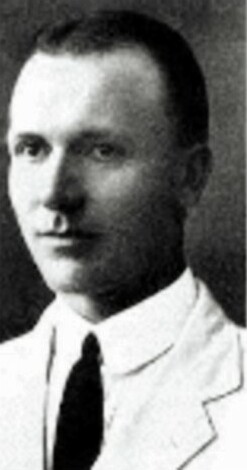|
List Of Egyptologists
This is a partial list of Egyptologists. An Egyptologist is any archaeologist, historian, linguist, or art historian who specializes in Egyptology, the scientific study of Ancient Egypt and its antiquities. Demotists are Egyptologists who specialize in the study of the Demotic language and field of Demotic Studies. Although a practitioner of the disciplined study of Ancient Egypt and Egyptian antiquities is an "Egyptologist", the field of Egyptology is not exclusive to such practitioners. A * Barbara G. Adams (British, 1945–2002) *Johan David Åkerblad (Swedish, 1763–1819) *Cyril Aldred (British, 1914–1991) * James Peter Allen (American, born 1945) * Maurice Alliot (French, 1903–1960) *Hartwig Altenmüller (German, born 1938) *Émile Amélineau (French, 1850–1915) * Alessia Amenta (Italian) * Guillemette Andreu (French, born 1948) *Tadeusz Andrzejewski (Polish, 1923–1961) *Jan Assmann (German, born 1938) * Éric Aubourg (French) * Sydney Hervé Aufrère (French, b ... [...More Info...] [...Related Items...] OR: [Wikipedia] [Google] [Baidu] |
Archaeologist
Archaeology or archeology is the scientific study of human activity through the recovery and analysis of material culture. The archaeological record consists of artifacts, architecture, biofacts or ecofacts, sites, and cultural landscapes. Archaeology can be considered both a social science and a branch of the humanities. It is usually considered an independent academic discipline, but may also be classified as part of anthropology (in North America – the four-field approach), history or geography. Archaeologists study human prehistory and history, from the development of the first stone tools at Lomekwi in East Africa 3.3 million years ago up until recent decades. Archaeology is distinct from palaeontology, which is the study of fossil remains. Archaeology is particularly important for learning about prehistoric societies, for which, by definition, there are no written records. Prehistory includes over 99% of the human past, from the Paleolithic until the adv ... [...More Info...] [...Related Items...] OR: [Wikipedia] [Google] [Baidu] |
Émile Amélineau
Émile Amélineau (1850 – 12 January 1915 at Châteaudun) was a French Coptologist, archaeologist and Egyptologist. His scholarly reputation was established as an editor of previously unpublished Coptic texts. But his reputation was destroyed by his work as a digger at Abydos, after Flinders Petrie re-excavated the site and showed how much destruction Amélineau had wrought. Career Amélineau began his career by studying theology and was ordained as a priest prior to 1878. Between 1878 and 1883 he studied Egyptology and Coptic at Paris under the direction of Gaston Maspero and Eugène Grébaut. In 1883 he was a member of the French archaeological mission at Cairo, and renounced his orders. In 1887 he submitted his thesis, on Egyptian gnosticism. Thereafter he held a number of academic posts in France. Amélineau published great quantities of Coptic literature. He was perhaps the greatest Coptic scholar of his generation. He undertook an ambitious project to edit the lit ... [...More Info...] [...Related Items...] OR: [Wikipedia] [Google] [Baidu] |
Pascale Ballet
Pascale Ballet (born 1953) is a French Egyptologist, and a Professor of Art History and Archaeology of Antiquity at the University of Poitiers. The subject of her thesis obtained in June 1980 under the leadership of Jean Leclant was on terracotta figurines from Egypt and the Mediterranean in the Hellenistic and Roman times, in which she is an expert. She was a former member of the French Institute of Oriental Archaeology in Cairo, former director of the laboratory of the Hermes University of Poitiers and former member of the commission of specialists until 2008. She has also participated in excavations of Jean-Yves Empereur, and the Archaeological Mission at the site of Buto Buto ( grc, Βουτώ, ar, بوتو, ''Butu''), Bouto, Butus ( grc, links=no, Βοῦτος, ''Boutos'') Herodotus ii. 59, 63, 155. or Butosus was a city that the Ancient Egyptians called Per-Wadjet. It was located 95 km east of Alexandr ... ( Tell el Fara'in) in the Egyptian Delta. Publications * ... [...More Info...] [...Related Items...] OR: [Wikipedia] [Google] [Baidu] |
John Baines (Egyptologist)
John Robert Baines, (born 17 March 1946) is a retired British Egyptologist and academic. From 1976 to 2013, he was Professor of Egyptology at the University of Oxford and a fellow of The Queen's College, Oxford. Early life Baines was born on 17 March 1946. He is the oldest son of Edward Russell Baines and his wife Dora Margaret Jean (née O’Brien). He was educated at Winchester College, an all boys public boarding school in Winchester, Hampshire, England. He went on to study Egyptology at the University of Oxford. He graduated with a Bachelor of Arts degree (BA) in 1967, later promoted to Master of Arts (MA). He gained his Doctor of Philosophy degree (DPhil) in 1976. Academic career Baines was Professor of Egyptology at the University of Oxford from 1976 to 2013. He was one of the youngest professors at the university at the age of 30. He retired from full-time academia in 2013 but maintains his link with Oxford as a research associate. Baines is the author of multiple sc ... [...More Info...] [...Related Items...] OR: [Wikipedia] [Google] [Baidu] |
Alexander Badawy
Alexander Badawy (November 29, 1913 – May 1986) was an Egyptian Egyptologist. He was born in Egypt and taught Egyptology in the United States. He was professor of art history at UCLA, and after he became professor emeritus, emeritus, he endowed a chair (in 1985) at Johns Hopkins University, currently held by Betsy Bryan. Alexander Badawy Chair in Egyptian Art and Archaeology. Selected publications * Coptic Art and Archaeology: The Art of the Christian Egyptians from the Late Antique to the Middle Ages, 1978 * Architecture in Ancient Egypt and the Near East, 1966 * A history of Egyptian architectureReferences [...More Info...] [...Related Items...] OR: [Wikipedia] [Google] [Baidu] |
Ludwig Borchardt
Ludwig may refer to: People and fictional characters * Ludwig (given name), including a list of people and fictional characters * Ludwig (surname), including a list of people * Ludwig Ahgren, or simply Ludwig, American YouTube live streamer and content creator Arts and entertainment * ''Ludwig'' (cartoon), a 1977 animated children's series * ''Ludwig'' (film), a 1973 film by Luchino Visconti about Ludwig II of Bavaria * '' Ludwig: Requiem for a Virgin King'', a 1972 film by Hans-Jürgen Syberberg about Ludwig II of Bavaria * "Ludwig", a 1967 song by Al Hirt Other uses * Ludwig (crater), a small lunar impact crater just beyond the eastern limb of the Moon * Ludwig, Missouri, an unincorporated community in the United States * Ludwig Canal, an abandoned canal in southern Germany * Ludwig Drums, an American manufacturer of musical instruments * ''Ludwig'' (ship), a steamer that sank in 1861 after a collision with the '' Stadt Zürich'' See also * Ludewig * Ludvig * Ludwik ... [...More Info...] [...Related Items...] OR: [Wikipedia] [Google] [Baidu] |
Edward Russell Ayrton
Edward Russell Ayrton (17 December 1882 – 18 May 1914) was an English Egyptologist and archaeologist. Early life Ayrton was the son of William Scrope Ayrton (1849-1904), a British consular official in China, and his wife Ellen Louisa McClatchie, and was born in Wuhu, China, on 17 December 1882 (coincidentally, the same year as the formation of the Egypt Exploration Fund). His younger sister was the suffragist Phyllis Ayrton (1884-1975). The Ayrton family originated in Yorkshire. Edward's similarly-named forebear, Edward Ayrton (1698-1774), was mayor of Ripon in 1760, laying the foundations for the family's subsequent prominence. The mayor's son was the leading organist and choirmaster, Dr. Edmund Ayrton (1734-1808) and his son in turn - the mayor's grandson and the great-grandfather of the archeologist - was the theatre-reviewer William Ayrton (1777-1858). Ayrton was educated at St Paul's School, in London. Career He began his career in Egyptology at the age of 20, assisti ... [...More Info...] [...Related Items...] OR: [Wikipedia] [Google] [Baidu] |
Émile Prisse D'Avennes
Achille-Constant-Théodore-Émile Prisse d'Avennes (27 January 1807, Avesnes-sur-Helpe – 16 February 1879, Paris) was a French archaeologist, Egyptologist, architect and writer. Biography Prisse d'Avennes was born in Avesnes-sur-Helpe, France, on 27 January 1807, to a noble family of French origin. After the early death of his father in 1814, on the guidance of his grandfather he enrolled at college a year later to train for a career within the legal profession. Prisse d'Avennes decided to become an archaeologist in 1836 after a period teaching at the infantry school in Damietta. Life in Egypt In 1827 when he reached Egypt, he was hired by the viceroy of Egypt, Muhammad Ali Pasha, as a civil engineer. He spent many years living as an Egyptian, adopting the name Idriss-effendi, learning to speak Arabic and practicing Islam. He stated that adopting Egyptian culture resulted in a greater understanding of Egyptian society and people. Oriental Album In 1848, he contribute ... [...More Info...] [...Related Items...] OR: [Wikipedia] [Google] [Baidu] |
Sydney Hervé Aufrère
Sydney Hervé Aufrère (born July 2, 1951, in Boulogne-Billancourt) is a French Egyptologist, archaeologist, and director of research at CNRS. From 1973 to 1976 he worked in the Department of Egyptian Antiquities of the Louvre Museum, then for sixteen months (1976-1977), the " Centre for Documentation of Ancient Egypt" (CEDA), Cairo. He participated from 1976 to 1980 in archaeological expeditions in the Valley of the Queens (Tuya's tomb QV80) and the Ramesseum. From 1981 to 1983 he was assistant teacher of Egyptian Archaeology at the Ecole du Louvre, then in 1983/84, he was a lecturer in Egyptian inscriptions of the same school. From 1985 to 1989, he was a scientific member of the French Institute of Oriental Archaeology in Cairo, and participated in excavations. In 1991, he was appointed director of research at CNRS, and was affiliated with the Université Paul Valéry from 1991 to 2005. From 1992 to 2003 he supervised the unit that specializes in texts from the Ptolemaic pe ... [...More Info...] [...Related Items...] OR: [Wikipedia] [Google] [Baidu] |
Éric Aubourg
Éric Aubourg is a French astrophysicist at the Commissariat à l'Énergie Atomique The French Alternative Energies and Atomic Energy Commission or CEA (French: Commissariat à l'énergie atomique et aux énergies alternatives), is a French public government-funded research organisation in the areas of energy, defense and securit ... and a member of the APC/Université Paris-Diderot Cosmology Group. He has made several published contributions to the field of Egyptology, including a dating of the Dendera zodiac, whose age was the center of a significant archaeological debate in the 1800s. It is also likely he is the author of MacScribe, a hieroglyph typesetting software for Macintosh, since it originated from the same department he collaborated with on the Dendera dating, and is attributed to someone with his name. Egyptology Publications * * * References French physicists French Egyptologists Living people Year of birth missing (living people) {{Egyptolog ... [...More Info...] [...Related Items...] OR: [Wikipedia] [Google] [Baidu] |
Jan Assmann
Jan Assmann (born Johann Christoph Assmann; born 7 July 1938) is a German Egyptologist. Life and works Assmann studied Egyptology and classical archaeology in Munich, Heidelberg, Paris, and Göttingen. In 1966–67, he was a fellow of the German Archaeological Institute in Cairo, where he continued as an independent scholar from 1967 to 1971. After completing his habilitation in 1971, he was named a professor of Egyptology at the University of Heidelberg in 1976, where he taught until his retirement in 2003. He was then named an ''Honorary Professor of Cultural Studies'' at the University of Constance, where he is today. In the 1990s, Assmann and his wife Aleida Assmann developed a theory of cultural and communicative memory that has received much international attention. He is also known beyond Egyptology circles for his interpretation of the origins of monotheism, which he considers as a break from earlier cosmotheism, first with Atenism and later with the Exodus from Egypt o ... [...More Info...] [...Related Items...] OR: [Wikipedia] [Google] [Baidu] |

.jpg)


